
Match Cards
Memory game available as a PWA on both web and Google & App stores

The goal was to demonstrate how a single codebase can create and distribute an app on both desktop and mobile.
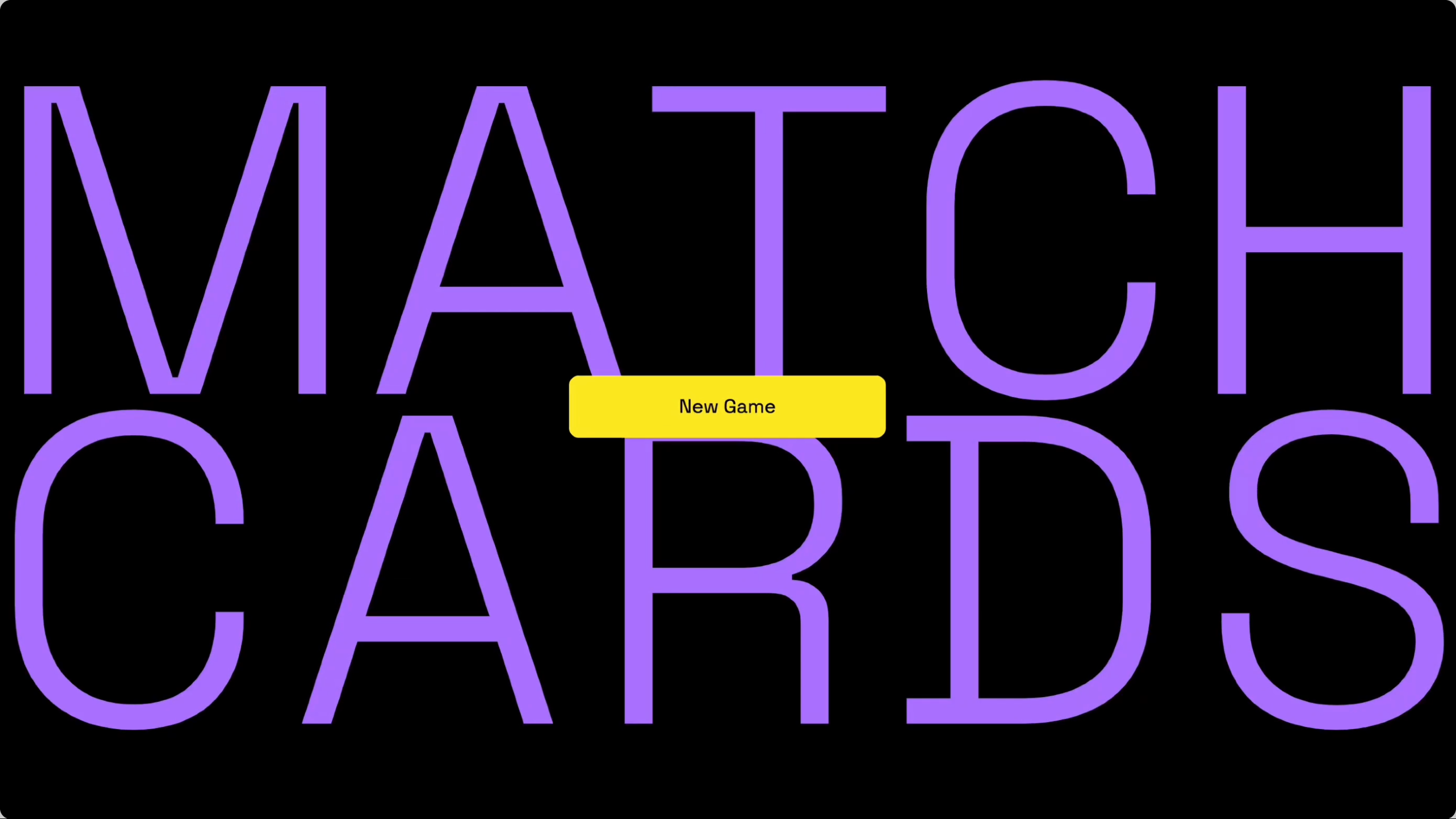
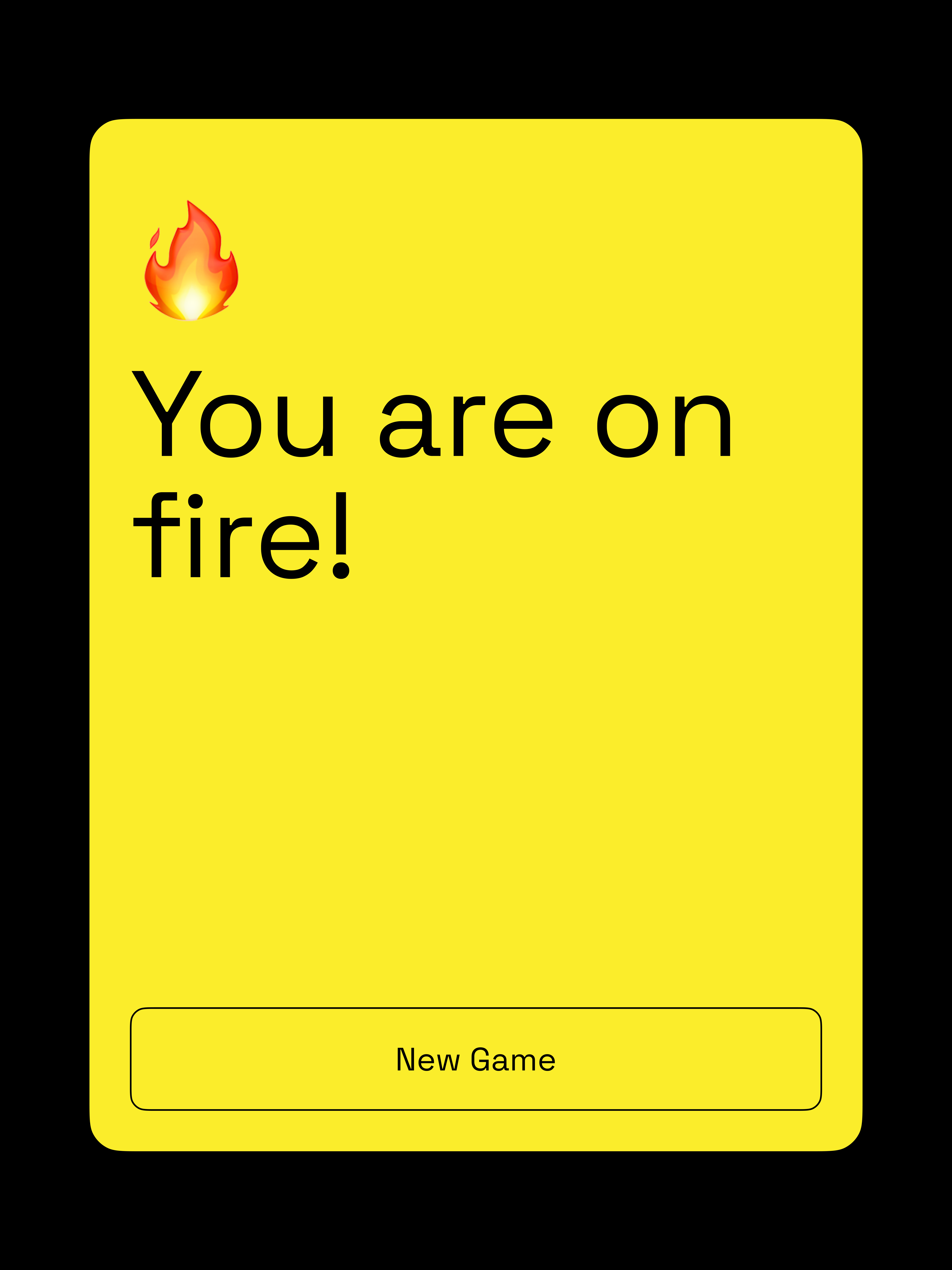
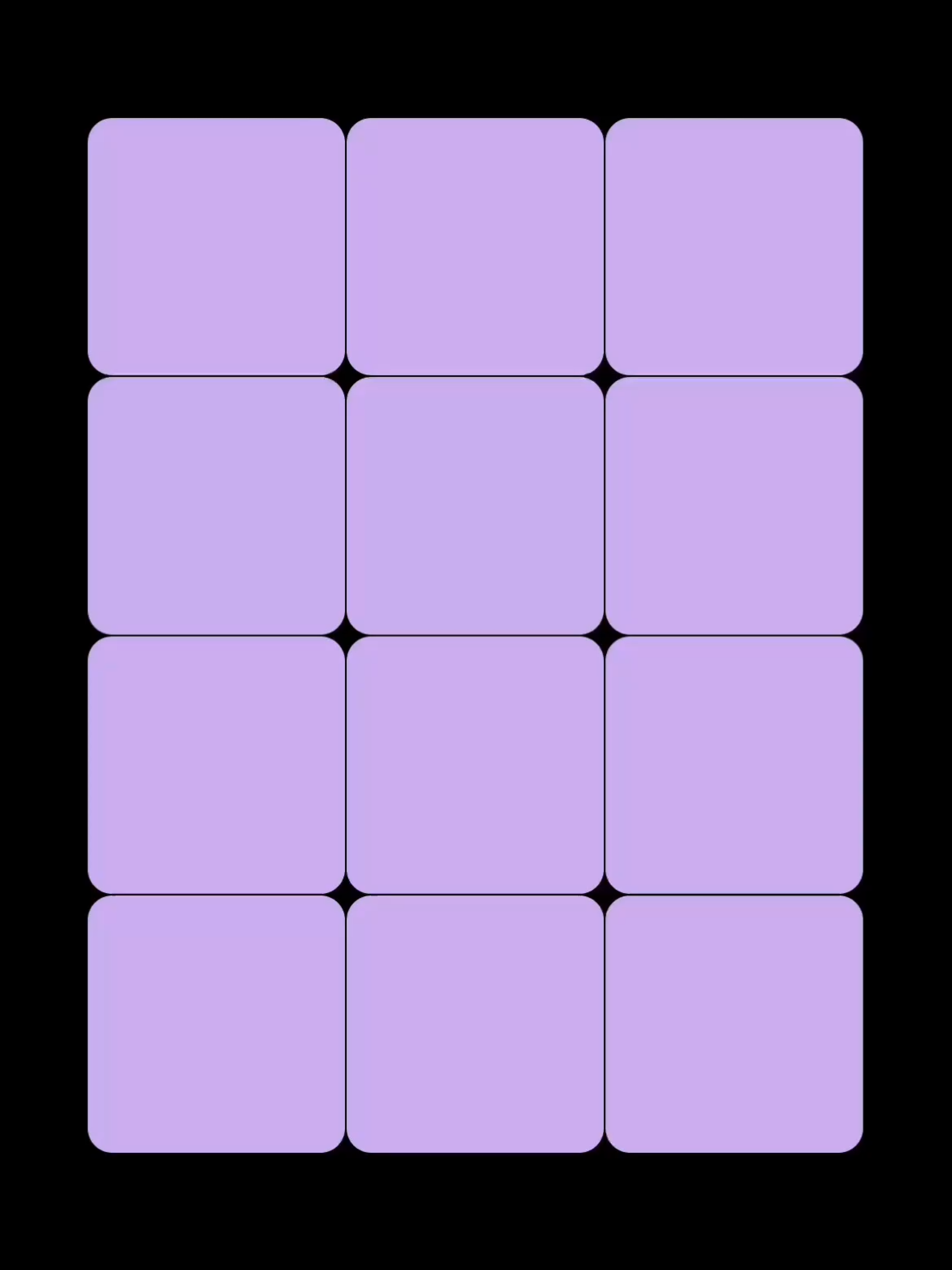
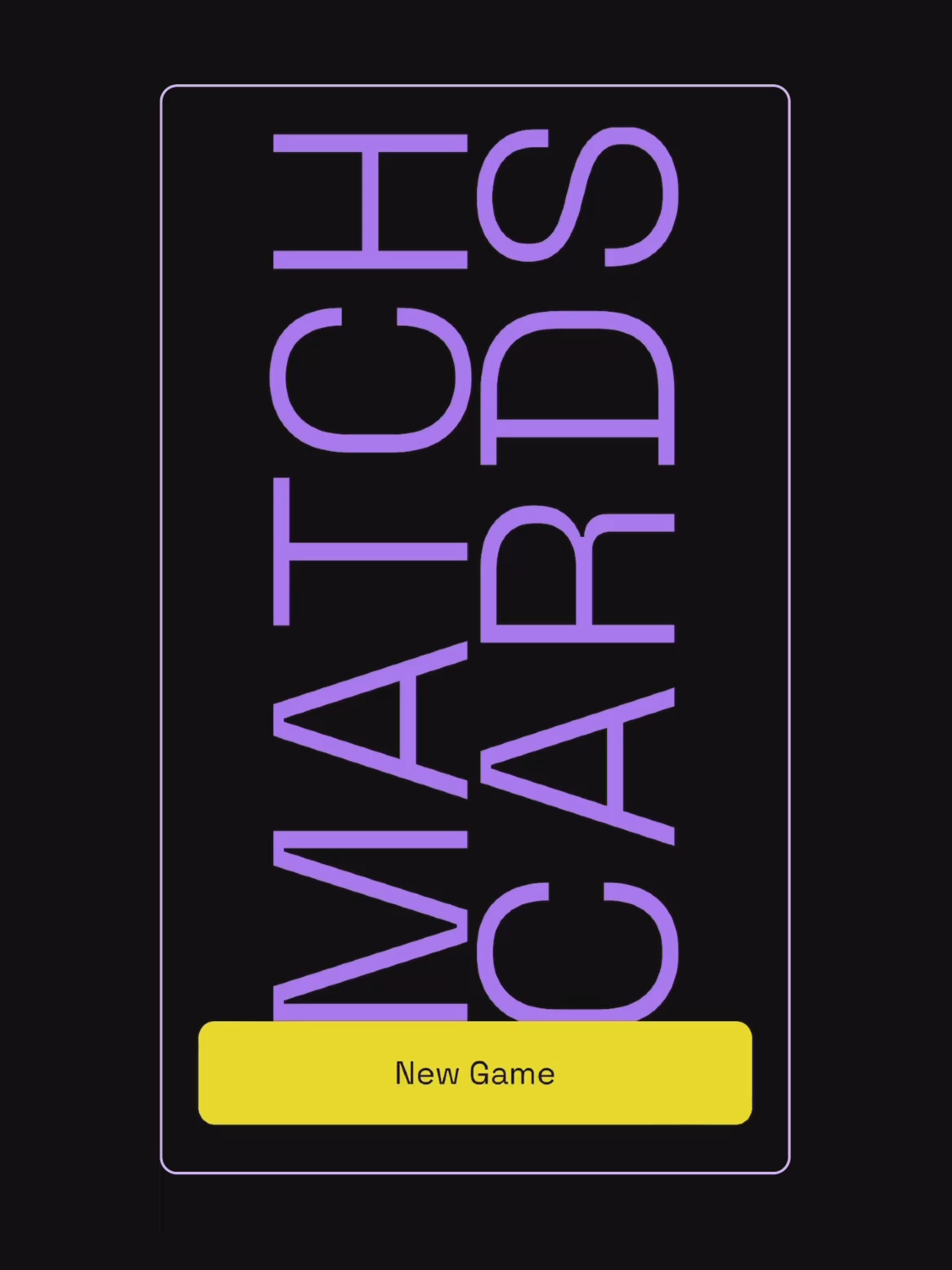
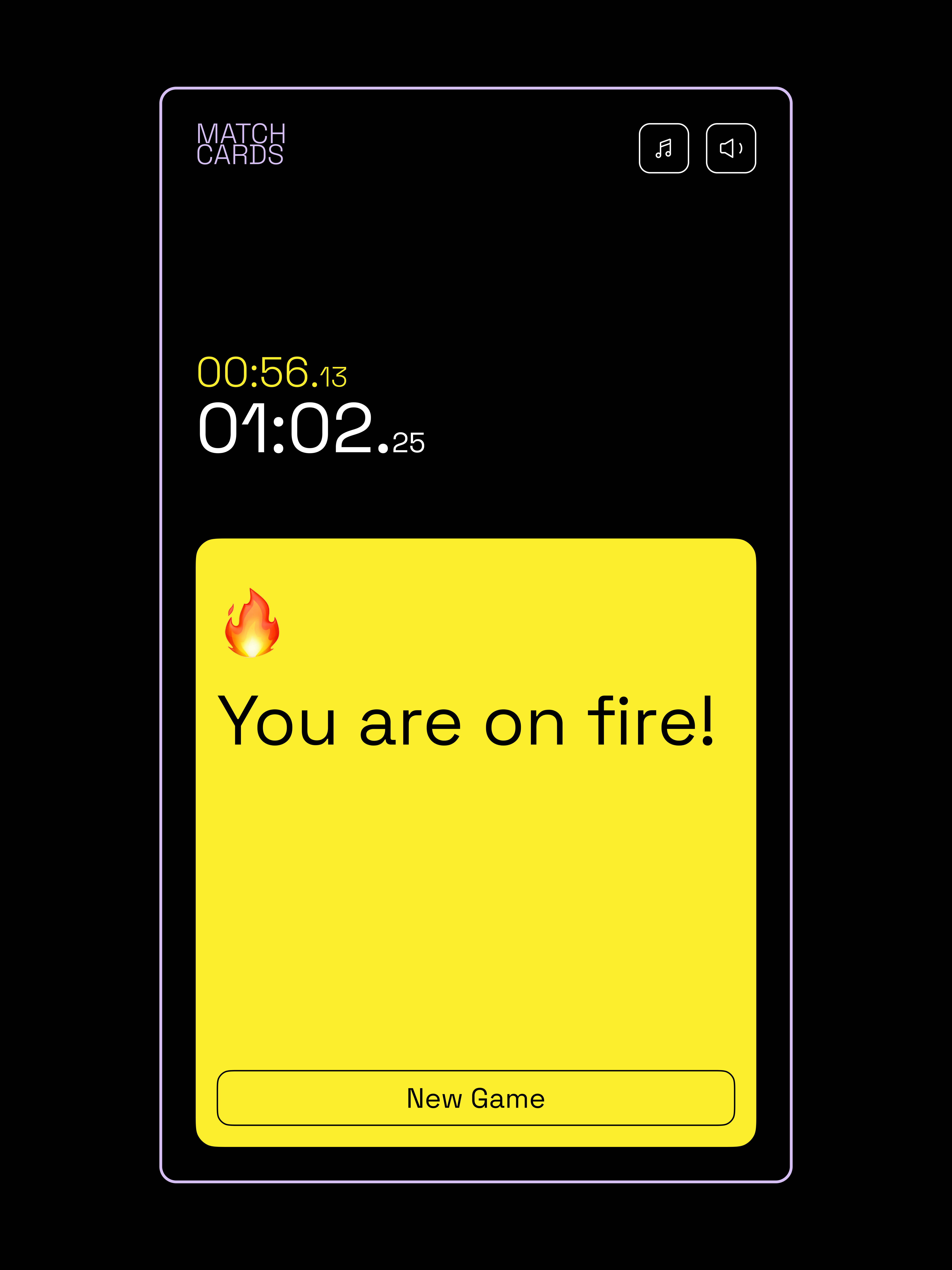
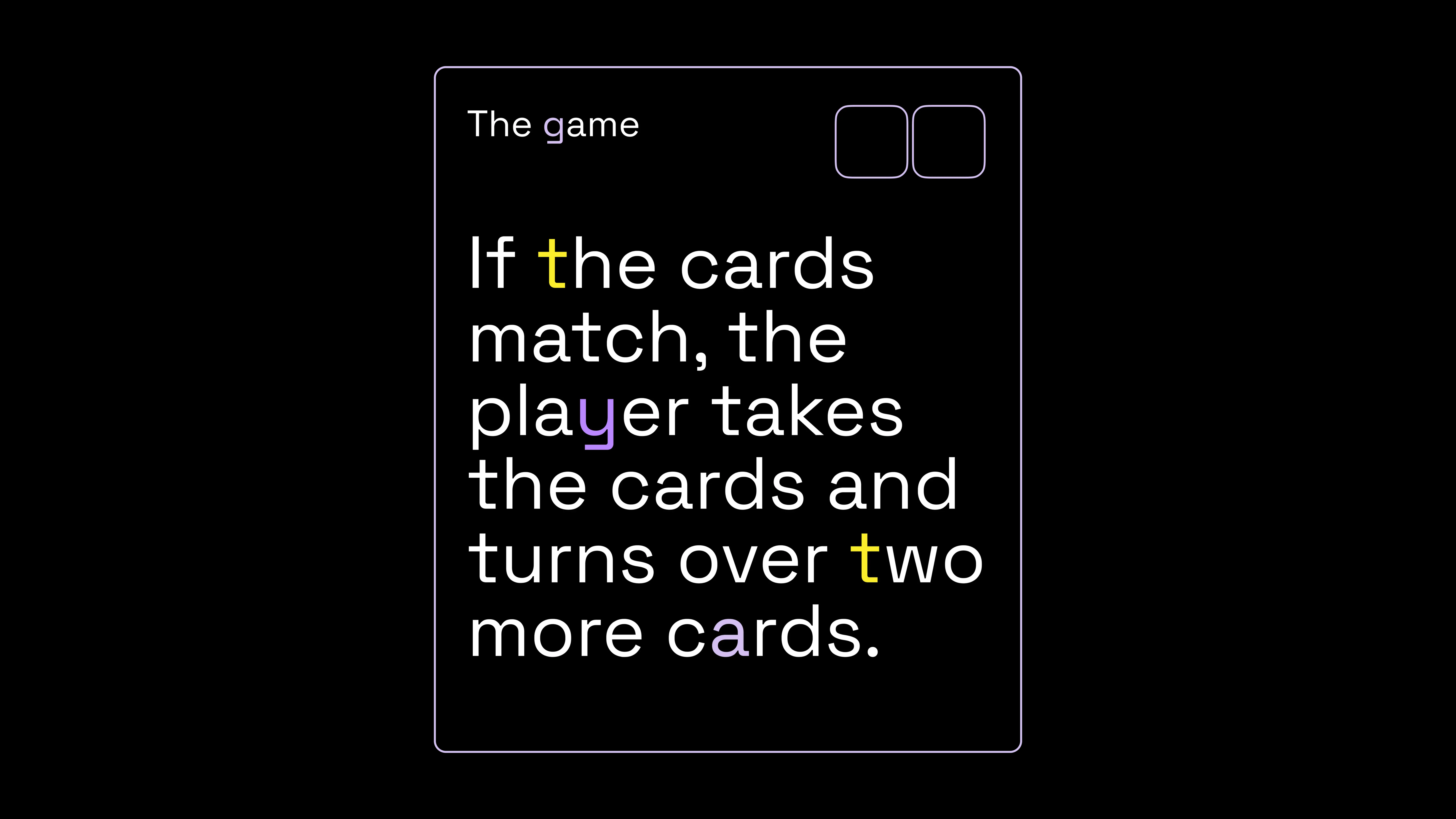
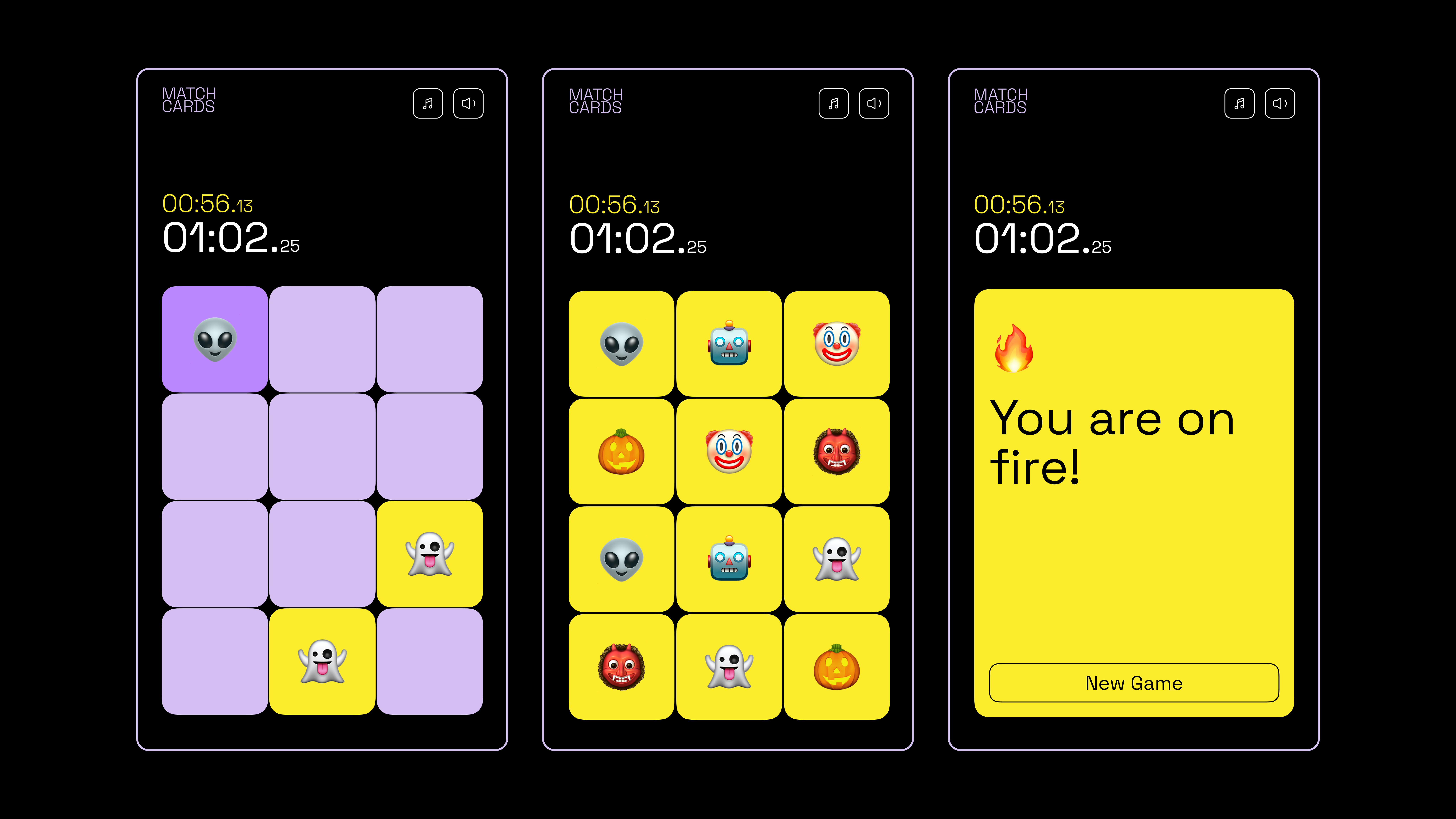
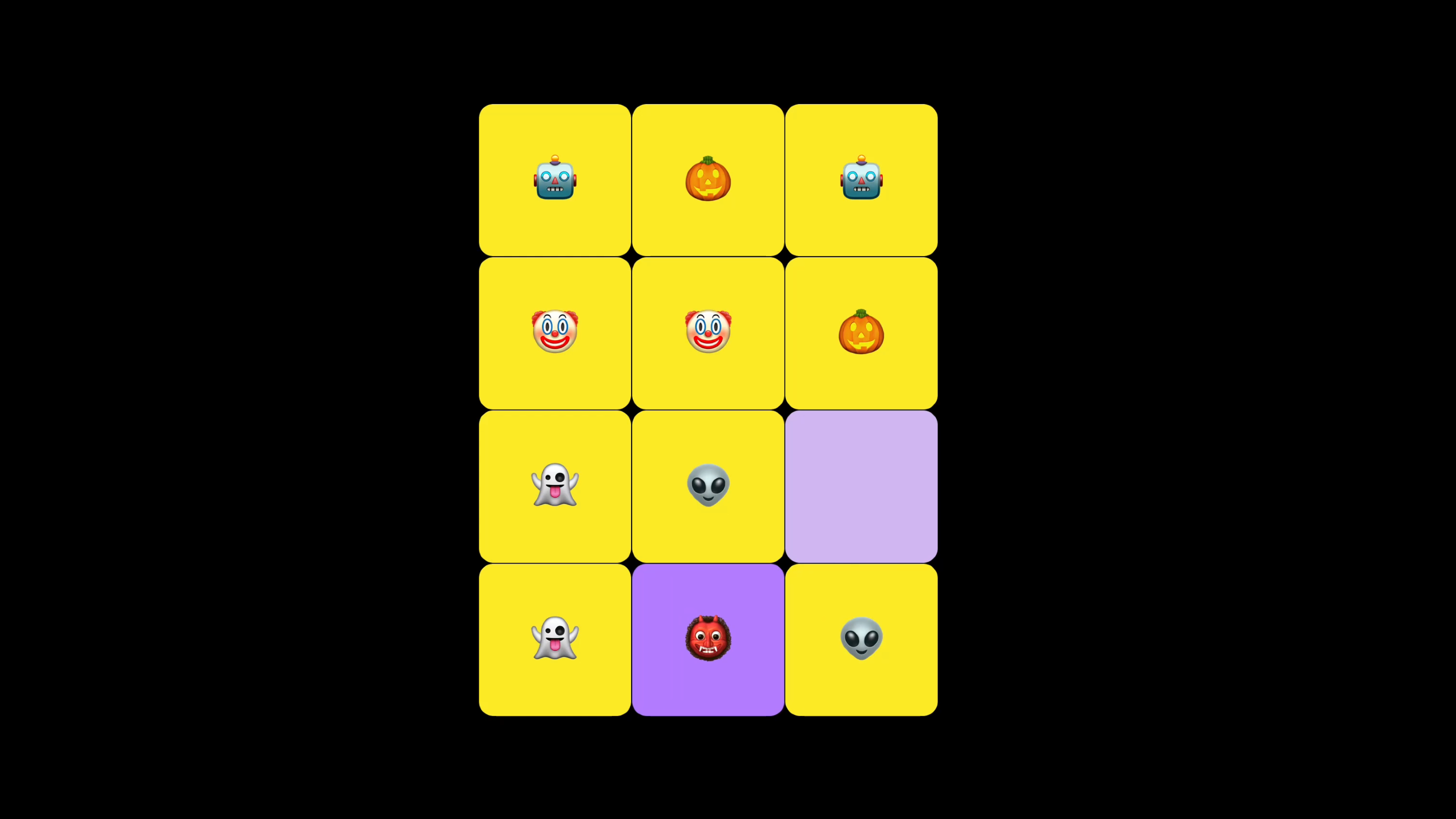
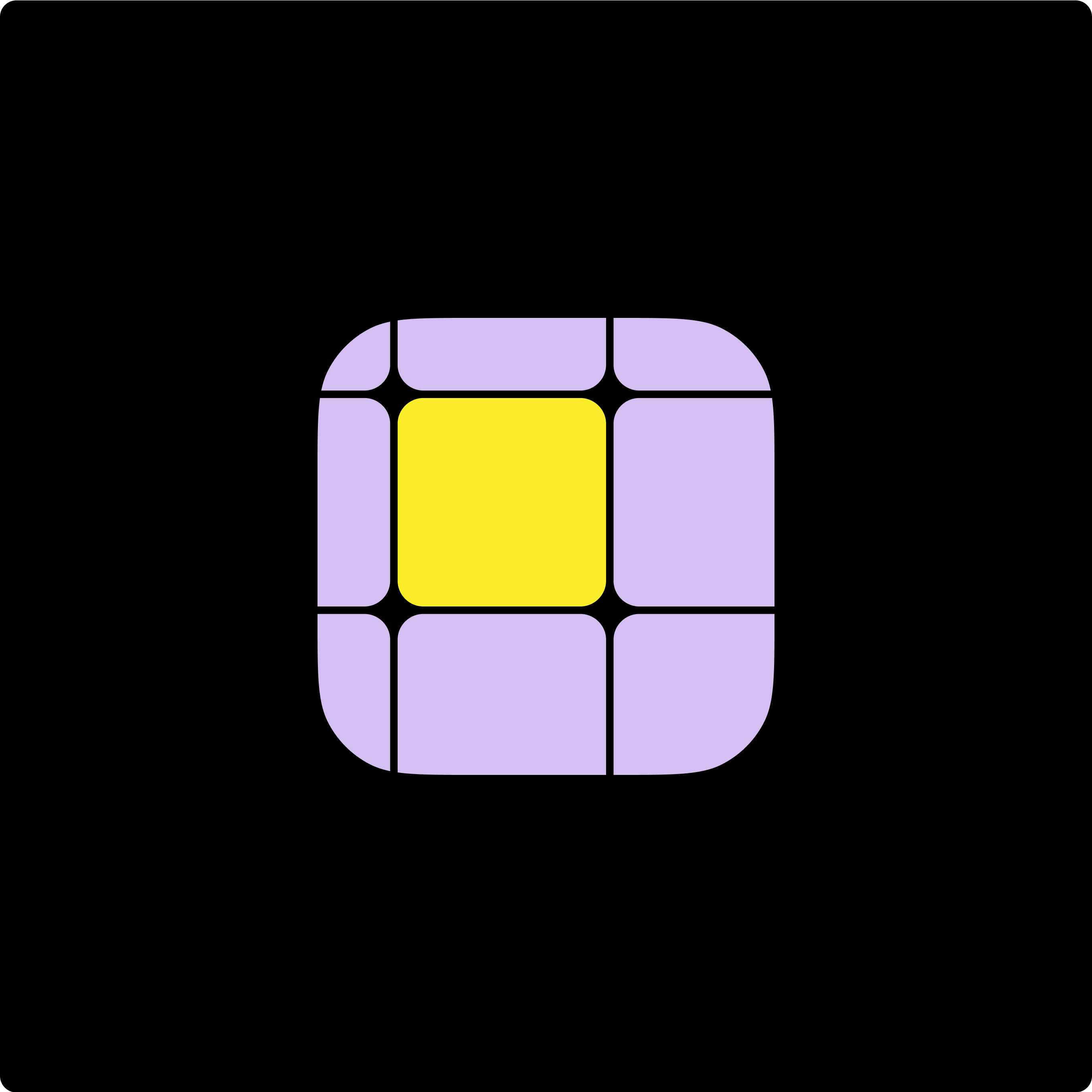
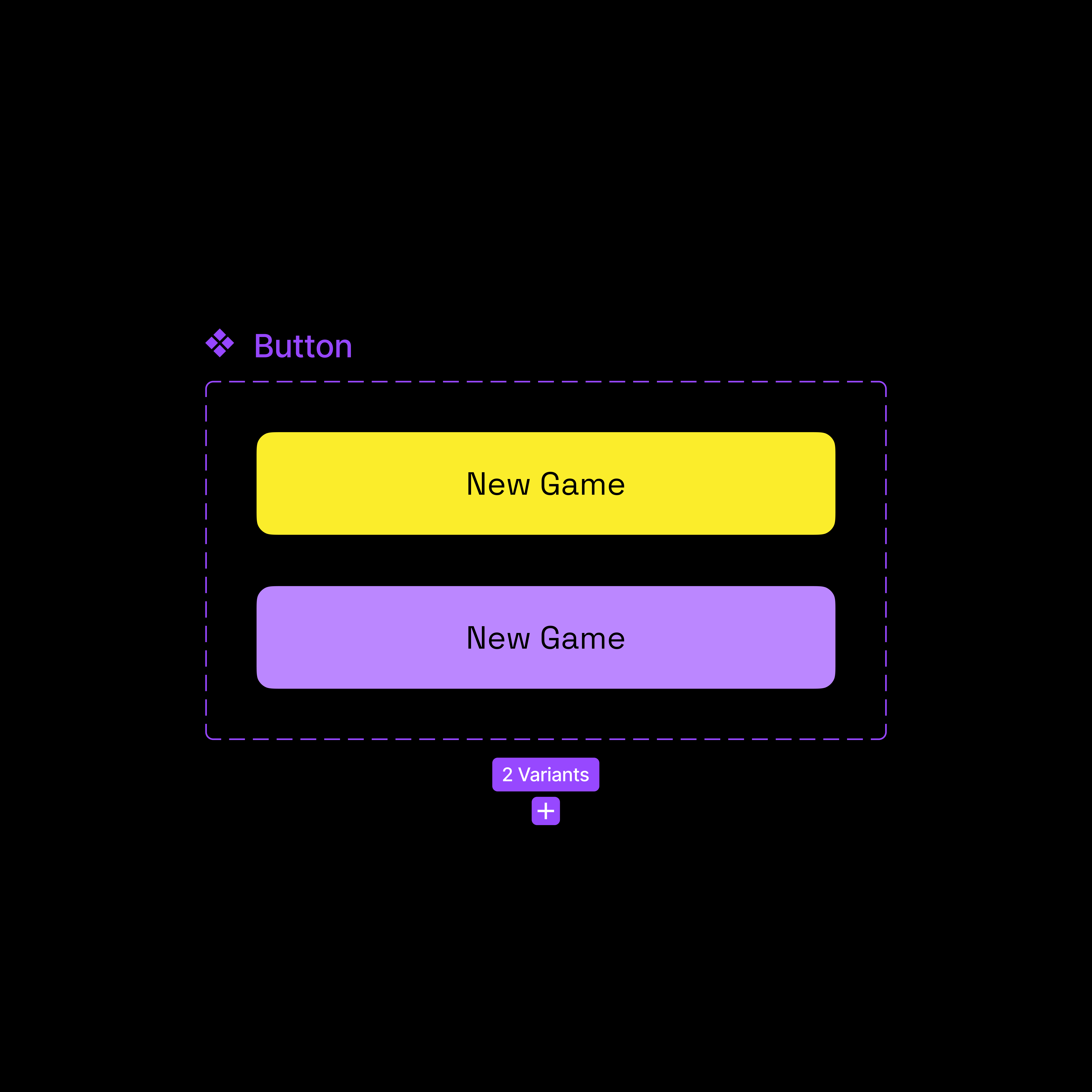
View more work

Memory game available as a PWA on both web and Google & App stores

The goal was to demonstrate how a single codebase can create and distribute an app on both desktop and mobile.










